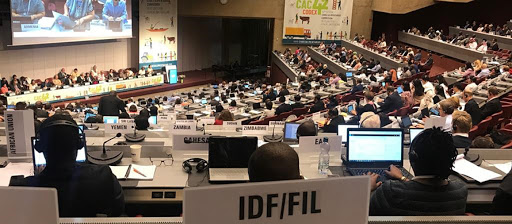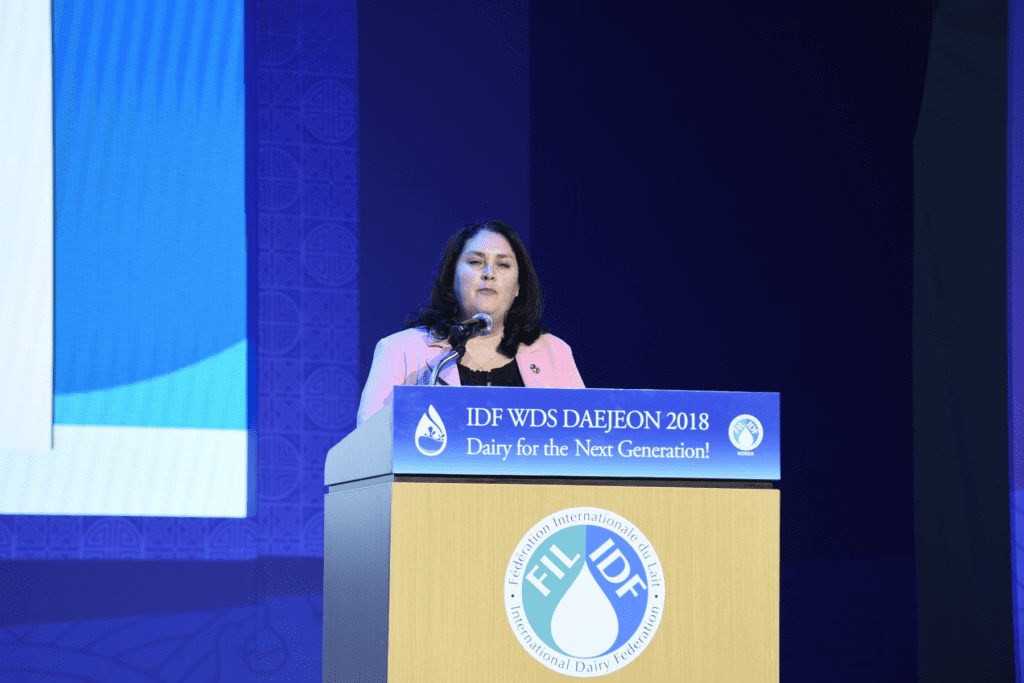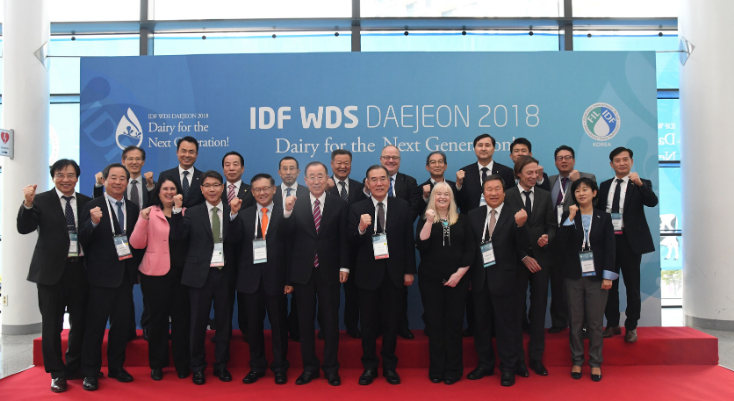Codex Secretary Tom Heilandt will stress the importance of the strong collaboration between Codex and the International Dairy Federation (IDF) at the IDF World Dairy Summit 2018 in Daejeon, South Korea, on 17 October 2018. He will address the special status of the IDF in the Codex standard-setting process and the shared goals of the two key international actors to promote food safety.
“I will outline our joint achievements and look at ways in which we can work closer together towards a sustainable future with safe, good quality food in every home,” said Mr Heilandt.
IDF Director General Caroline Emond said the conference provides a useful platform for information-sharing on key aspects of food safety for dairy products.
“We are privileged to have the Codex Secretary share his insights on food safety standards which delegates will find most valuable,” said Ms Emond. “There is much to be learned from food safety experts sharing their national and international experiences for the advancement of scientific knowledge which will benefit the dairy sector.”
Advances in toxicology studies for food safety analysis and challenges in chemical risk assessments will be the focus of a talk by Dr Justin Bendall of Fonterra Research and Development Centre, New Zealand. He will speak on the importance of relevant toxicology studies for human health applications.
“When researchers discover a new contaminant or a potential new toxin in food, regulatory authorities will respond to their citizens’ concerns by imposing controls on those chemicals which are perceived to be harmful,” said Dr Bendall.
“The safety and quality of food products must always be based on appropriate science-based risk assessments. Yet the available toxicology information used to guide regulatory controls may be decades old, of low quality or based on a reductionist view of isolated chemicals rather than a whole system of human metabolism with whole foods which may counteract a toxin’s properties. That information could be of dubious relevance or value to human health, whereas better approaches are becoming available,” he explained.
Dr Bendall stated that in the process of attempting to minimize one hazard in isolation where the significance to human health may be uncertain, unintended consequences will inevitably occur which could be detrimental to the nutritional status and wellbeing of individuals. This situation, he said, will impact public health.
Another topic to be discussed at the conference is the screening and identification of veterinary drug residues which pose a challenge to food control due to a number of regulated compounds, various matrices and global differences in maximum residue limits (MRLs). Dr Erik Konings of the Nestlé Research Lausanne, Switzerland, will examine this issue closely.
“More advanced testing of veterinary drug residues for antibiotic, antiparasitic and anti-inflammatory treatment are being developed in the field of liquid-chromatography-mass spectrometry (LC-MS),” said Dr Konings. “LC-MS plays a pivotal role in the development of highly sensitive and accurate assays, which will ensure adequate consumer protection at an affordable cost.”
Dr Konings will provide an overview of the regulatory framework in Codex, Canada, China, the United States and the European Union on MRL in veterinary drug residues in bovine milk. He will highlight the joint efforts by the AOAC INTERNATIONAL, International Organization for Standardization (ISO) and IDF to identify one or a suite of analytical methods in the screening and identification of regulated veterinary drug residues with established MRLs.
Dr Andrew Bartholomaeus of the University of Canberra will talk about nanotechnology and dairy food safety.
“Dairy foods naturally contain nanostructured particulate materials, as does human breast milk,” said Dr Bartholomaeus. “Similarly, engineered nanostructures in food have been an aspect of food processing for centuries, such as in ice cream. All materials have structure at the nanometre scale. Where a nanomaterial remains particulate in the final food as consumed, there is at least theoretical potential for altered pharmacokinetics and therefore, greater scrutiny may be required. Size alone is no indicator of hazard. It is novelty, not size which may raise potential concerns.”
Mr Francois Bourdichon, Deputy Chair of the IDF Standing Committee on Microbiological Hygiene (SCMH) will look at lessons learned from the recent outbreak of Listeria monocytogenes affecting deli-meat in South Africa, and frozen corn and vegetables in the European Union.
“While this bacteria is occasionally associated with dairy food products, Listeria can also contaminate meat and vegetables, so we need to pay greater attention on preventive measures to ensure food safety,” said Mr Bourdichon.
“It is important to reduce the need for antimicrobial therapy to prevent the spread of antimicrobial resistance (AMR). The existing good practices through adherence to the Codex Code of Hygienic Practice for Milk and Milk Products can serve as an example for other food sectors,” he added.
Other speakers include Dr Yukiko Yamada of the Ministry of Agriculture, Forestry and Fisheries of Japan; Professor Sang-Hee Jeong of Hoseo University, South Korea; Dr Byoung-Yong Kim of ChunLab, South Korea; Mr Hong Zhu of Junlebao Dairy Group, China; Dr Olivia McAuliffe of Teagasc, Ireland; and Professor Jang-Hyuk Anh of Cha University, South Korea.
Please click on the link below to download the programme for the IDF World Dairy Summit 2018.
For more details, visit www.idfwds2018.com.















